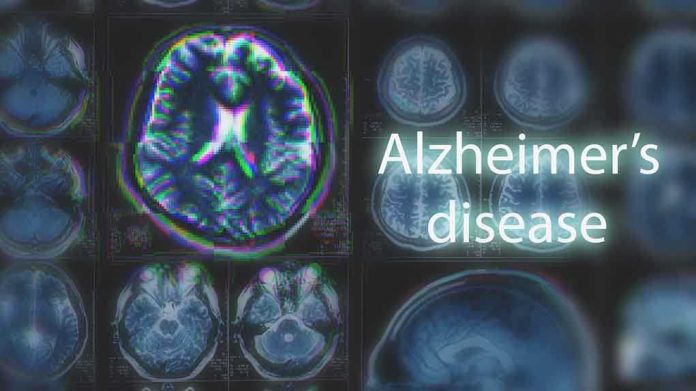
A breakthrough in lithium research could redefine Alzheimer’s treatment, offering new hope in the battle against this debilitating disease.
Story Highlights
- Groundbreaking research links lithium depletion to Alzheimer’s disease.
- Novel lithium compounds show promise in reversing memory decline.
- Clinical trials underway to test lithium-based treatments.
- Potential paradigm shift in Alzheimer’s prevention and therapy.
Lithium’s Emerging Role in Alzheimer’s Disease
For decades, lithium has been a staple in treating bipolar disorder, but recent research uncovers its critical role in Alzheimer’s disease (AD). Studies reveal that lithium depletion in the brain is an early event in Alzheimer’s pathology. This discovery reframes Alzheimer’s as not only a disease of protein aggregation but also one of mineral depletion. The implications are profound, suggesting new avenues for diagnosis, prevention, and treatment.
Novel lithium compounds have shown promise in reversing memory decline in animal models. These compounds uniquely bypass amyloid plaque sequestration, offering a potential solution to a previously insurmountable problem. The research, spearheaded by Bruce Yankner’s group at Harvard Medical School, has laid the groundwork for clinical trials now underway to assess these compounds’ safety and efficacy in humans.
Clinical Trials and Research Progress
In 2025, clinical trials commenced to test new lithium formulations in patients with mild cognitive impairment and Alzheimer’s. These trials, involving formulations like AL001, aim to establish optimal dosing and safety profiles. Early results have been promising, showing potential cognitive benefits without significant adverse effects. This progress has sparked cautious optimism among clinicians and patients alike, and further data is eagerly awaited.
However, challenges remain. Lithium’s narrow therapeutic window and potential toxicity, especially in elderly populations, necessitate careful monitoring and precise dosing. Researchers emphasize the need for larger, well-controlled trials to validate initial findings and ensure the safe application of these treatments in clinical settings.
Implications and Future Directions
The potential impact of these findings is significant. In the short term, there is a renewed interest in lithium as a therapeutic target, with increased funding and research efforts directed towards lithium-based Alzheimer’s treatments. Long-term, these developments could lead to lithium supplementation or novel compounds becoming standard preventive or therapeutic interventions, fundamentally shifting treatment paradigms and offering hope to millions affected by Alzheimer’s worldwide.
The economic, social, and political implications are equally noteworthy. Safe and effective lithium-based therapies could reduce Alzheimer’s-related healthcare costs, improve quality of life for patients and families, and prompt increased advocacy for research funding. As the search for disease-modifying therapies intensifies, lithium’s role could lead to a broader interest in mineral-based treatments for other neurodegenerative diseases.






